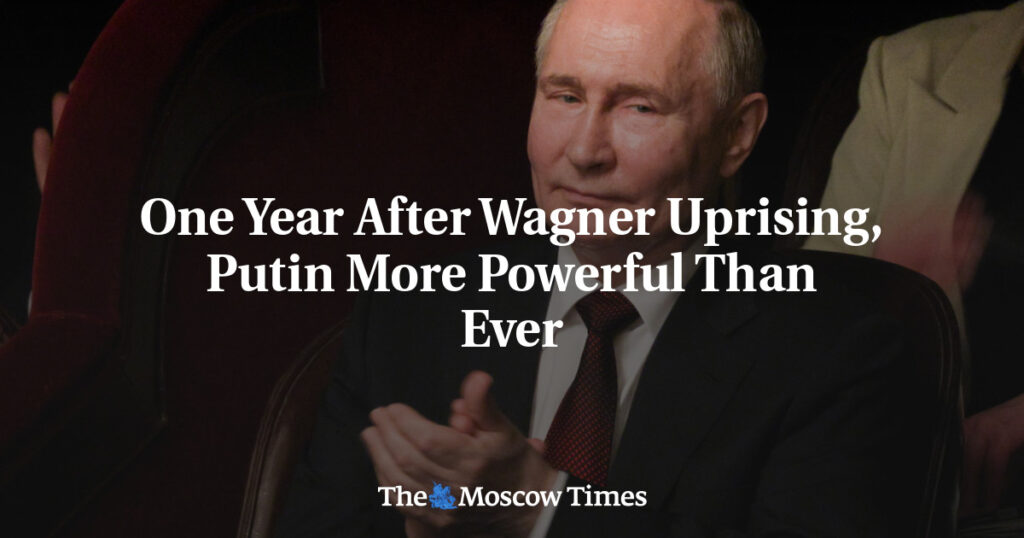In recent weeks, the president has mandated sweeping changes to the country’s military establishment, actions that notably align with some of the pre-mutiny demands previously articulated by Prigozhin. Such changes have manifested in the removal of Defense Minister Sergei Shoigu and the arrest of several senior military figures on corruption charges. This reshuffling marks a significant divergence from the president’s stance a year ago when he staunchly supported his defense chiefs amidst allegations of corruption and incompetence, especially regarding the mishandling of the Ukraine invasion.
The appointment of Andrei Belousov, a technocratic economist, as the new defense chief rather than a traditional military figure underscores a deliberate strategy to avoid empowering any leader who might advocate vehemently for the army’s interests at the highest echelons of power. This is a calculated move to ensure that no single individual gains undue influence within the defense establishment. According to analyst Petrov, it aligns with the president’s broader objectives of centralizing control and mitigating potential threats to his authority from within the military hierarchy.
Analysts note that this strategic realignment is driven by necessity rather than political pressure. Nigel Gould-Davies, a senior fellow for Russia and Eurasia at the International Institute for Strategic Studies, emphasizes that the president’s ability to enact these changes, despite their challenge to entrenched military interests, is indicative of his robust hold on power. Gould-Davies asserts, “The fact that he’s able to take these steps and challenge the interests and livelihood of senior military figures is a mark of his strength, rather than his weakness.”
In addition to military reforms, the president has reinforced his dominance through a resounding electoral victory, securing 87% of the vote in the March presidential elections. This outcome, achieved in the absence of substantial opposition and heavily criticized by international observers, signals a potent display of his unchallenged control. Gould-Davies interprets this as less reflective of actual popular support and more an expression of the president’s ability to manipulate electoral outcomes and enforce public acceptance. He remarked, “It’s an expression of his dominance and power that he can get away with this, rather than the official, published outcome in any way reflecting real support.”
The overwhelming election margin served a symbolic purpose, asserts Petrov, highlighting that it was engineered to project an image of undiminished popularity, exceeding levels before the onset of the war. Petrov elucidates that this inflated victory margin is not merely about garnering the highest number of votes but about demonstrating an unassailable public mandate.
Further cementing his authority, the president’s political adversary, Alexei Navalny, died in an Arctic prison colony in February while serving a substantial prison sentence. This incident, along with other repressive measures and harsh sentences imposed on dissenters, has effectively intimidated a significant portion of the populace. Gould-Davies remarks that these actions have collectively cowed the population, noting that this does not equate to genuine support for the Kremlin but rather highlights a climate of fear and persecution.
During the uprising on June 23-24, 2023, former President Dmitry Medvedev’s warnings about the risks of Russia’s nuclear arsenal falling into rogue hands, and the tepid calls for calm from regional officials, underscored the absence of widespread public defiance or fervent support for the current administration. Photographs from Rostov-on-Don, depicting residents interacting jovially with Prigozhin and his Wagner forces during the rebellion, illustrate a stark contrast in public sentiment.
The reaction from both the general populace and the elite to the uprising revealed a palpable lack of authentic enthusiasm for the president or the ongoing conflict. As Gould-Davies succinctly puts it, “Most people just want to keep their head down, and for the war and regime not to touch them.” This nuanced understanding of public sentiment underscores the president’s reliance on coercion rather than genuine popular support to maintain his grip on power.
(Source: AFP)
